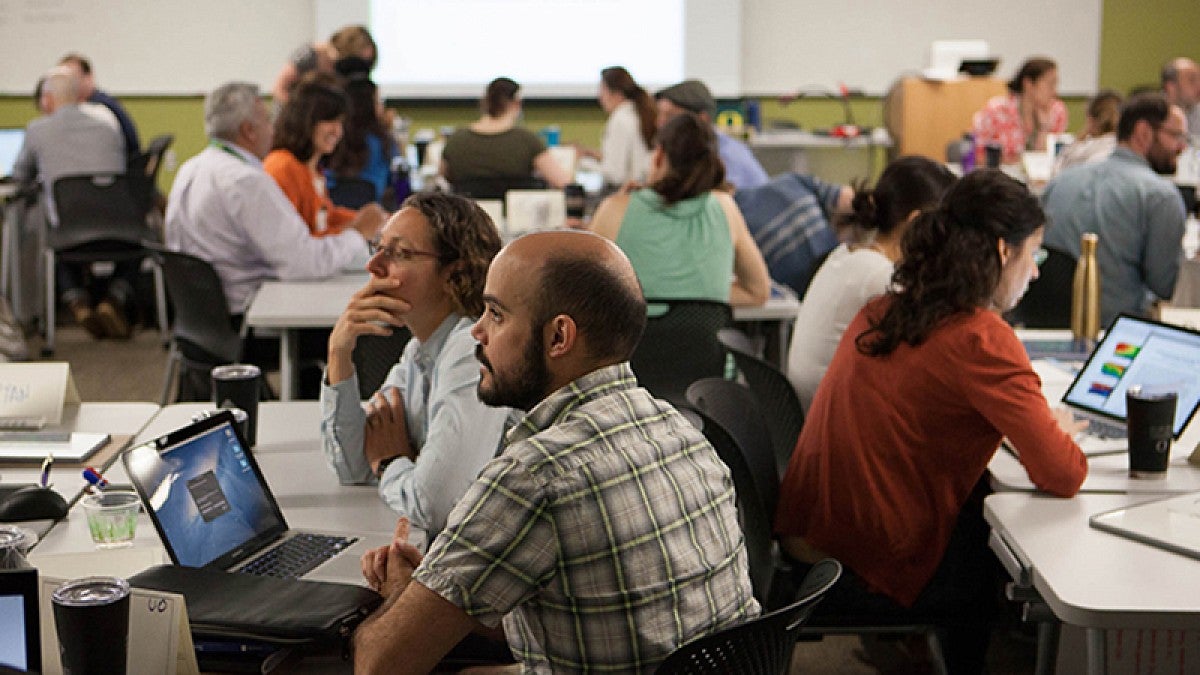The UO will host 54 current and future faculty members from 27 colleges and universities at a summer conference on science teaching.
The Summer Institute on Scientific Teaching will be one of four regional programs being held in the country this year. Funded by the Howard Hughes Medical Institute, the event is a chance for participants to discuss evidence-based teaching practices for science classes.
“Scientific teaching identifies and focuses on providing evidence-based professional development to science faculty, postdocs and graduate students,” said Elly Vandegrift, associate director of the Science Literacy Program and the regional leader for the institute. “The Poorvu Center for Teaching and Learning at Yale University, which currently houses summer institutes, estimates that to date the faculty who have completed these institutes across the country have taught 1 million students.”
The UO will have 24 faculty members, postdoctoral scholars and graduate students participating in this year’s summer institute.
“My Ph.D training and area of research is in the development and implementation of evidence-based prevention programs for school readiness and substance use; surprisingly we do not receive training in evidence-based teaching practices,” said Amanda Griffin, a postdoctoral fellow in the Prevention Science Institute, who will be attending the summer institute. “I believe it is important for teachers to adopt practices because they are also what we use as scientists.”
The multiday workshops will center around three pillars of scientific teaching — inclusivity, active learning and assessment — with the goal of supporting and preparing faculty members to use those practices in their classrooms.
The participants will also discuss current research on scientific teaching, including the role of student trust, overcoming barriers to adopting evidence-based teaching and ongoing development for improving faculty members’ implementation of inclusive teaching practices.
“In higher education generally, and in science in particular, we know that students from some demographics can feel somewhat alienated—they don't arrive with the same assumptions as the faculty or they don't feel as welcome as some of the other students,” said Sara Hodges, professor of psychology. “These students feel less like they belong, both academically and socially. I want to know how to connect all kinds of students to science.”
The institute will be on campus July 15-18. Additional regional summer institutes will be hosted at the University of California, San Diego; Louisiana State University; and Stony Brook University, with another 25 mobile summer institutes funded by the National Science Foundation and individual institutions throughout the summer.
For more information about the Summer Institute on Scientific Teaching, visit summerinstitute.org.
—By Jesse Summers, University Communications


